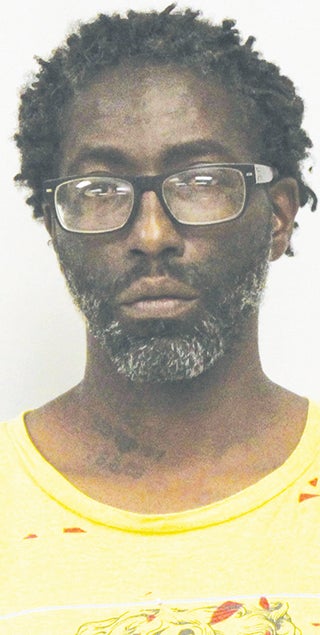Heart disease just as prevalent in women
Published 9:07 am Thursday, February 8, 2018
ADVANCE – All heart attacks can cause serious havoc, but some can be more deadly than others.
Every 40 seconds, someone in the United States has a heart attack. And each year nearly 800,000 Americans will suffer a heart attack.
In fact, heart disease is the leading cause of deaths in Americans. The Centers for Disease Control and Prevention says that coronary heart disease is the most common cause of heart attacks, but less frequently they can be brought on by a sudden contraction of a coronary artery that stops blood flow to the heart muscle.
About 47 percent of people suffer a fatal heart attack outside the hospital setting, which suggests that they ignored their early warning signs and symptoms such as chest pain, discomfort in the back or arms, nausea and shortness of breath.
“A widow-maker heart attack generally refers to a heart attack involving the Left Anterior Descending Artery (LAD),” said Dr. Takashi Hirata, a family practitioner at Novant Health Hillsdale Medical Associates in Advance. “Since likelihood of death after a heart attack is largely related to left ventricular function following the attack and LAD supplies the largest portion of left ventricular myocardium, it is termed widow-maker heart attack.”
The widow-maker is a massive heart attack that occurs when the LAD artery is totally or almost completely blocked. The critical mass in the artery stops all the blood flow to the entire left side of the heart, causing the heart to stop beating normally. When this happens, patients will go into cardiac arrest.
One of Hirata’s Novant Health colleagues, Dr. Gary Niess, an interventional cardiologist with Novant Health Heart & Vascular Institute, added that statistically widow-makers are likely to lead to brain aneurysm and irregular heartbeat.
Although blockages can occur in other arteries leading to the heart, the LAD artery is where most blockages occur.
Niess said that about one-third of coronary heart disease patients have blockages in one artery, about one-third have blockages in two arteries and one-third have blockages in all three arteries. The extent of the blockage can vary widely from 1 percent to 100 percent.
“A widow-maker is a widow-maker when it closes the artery not just by being,” Niess said. “Many people can survive widow-makers if we get them treatment right away.” The patient’s blocked artery is reopened with a stent.
Like other types of heart attack, this one is largely preventable. “It may sound trite, but don’t smoke, eat right, exercise, treat your cholesterol and high blood pressure,” Niess said.
Despite its name, the widow-maker doesn’t discriminate, said Hirata. Far from it, according to the Advance doctor.
“Typically men present with a classic set of symptoms with heart attack chest pain, sweating, left arm pain and shortness of breath. Women can often present only with some of the symptoms, even without chest pain while having a heart attack,” Hirata said. “This may lead to misconception that heart disease are less likely to affect women – however heart disease remains the number one cause of death among women. Women on average develop heart disease a little later in life compared to men also – which statistically makes the term widow-maker more likely to be the reality.”
According to Novant Health physicians, the chances for surviving heart attack are higher if you recognize the warning signs and seek prompt attention. Major symptoms include:
• chest pain;
• aches and pain in the arms, back, neck or jaw;
• shortness of breath;
• nausea;
• dizziness; and
• cold sweats.
The most common symptoms vary depending on your sex. Men and women will often complain of chest pain when experiencing a heart attack, but some women are more likely to experience other symptoms such as shortness of breath or nausea.
If you suspect you are having a heart attack, call 911 immediately.
How’s your heart health?
Novant Health has launched a community-wide campaign called the 10,000 Healthy Hearts Challenge with a goal to educate 10,000 people about their heart health by later this year.
Take the online heart health risk assessment at novanthealth.org/heartage, which analyzes cardiovascular risk factors, such as blood pressure, cigarette smoking, diabetes and body mass index. Then, tag five friends on social media using #NHHealthyHearts to spread the word. Once you accept the challenge, look for helpful wellness tips, recipe ideas and stress management reminders sent to your inbox to manage your heart health.




